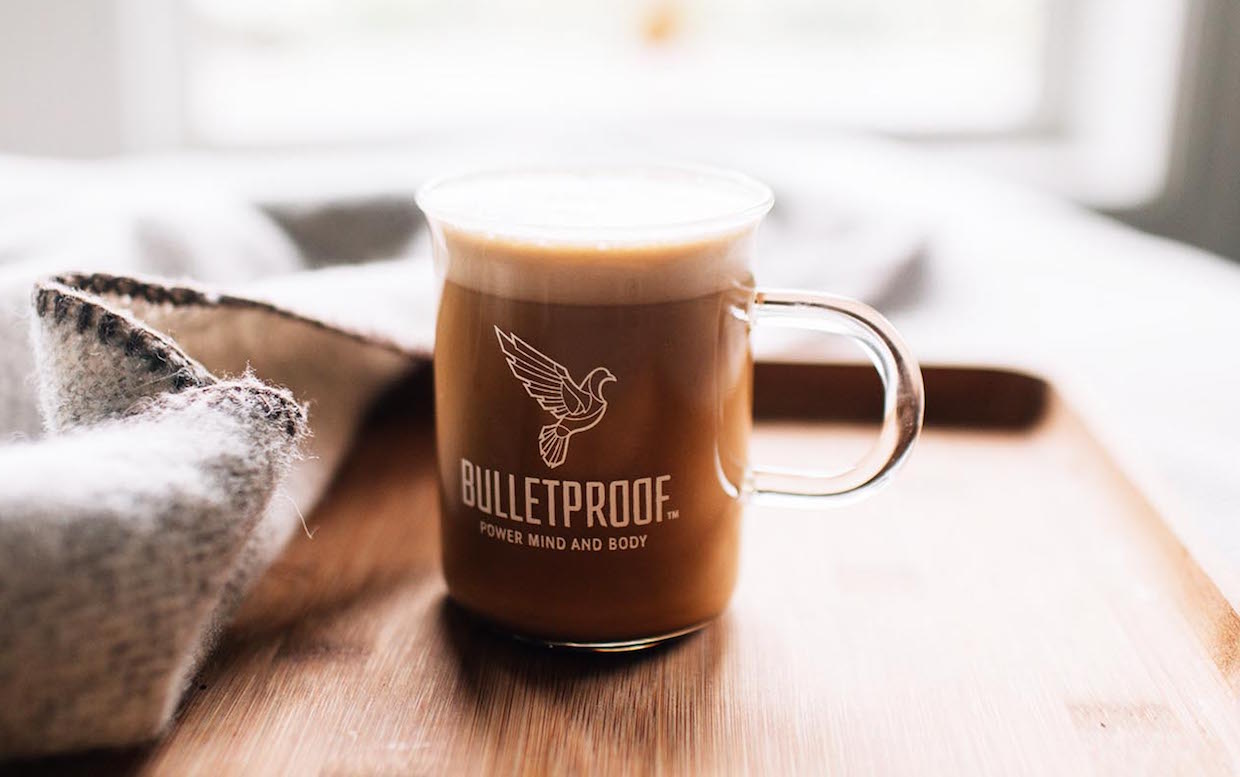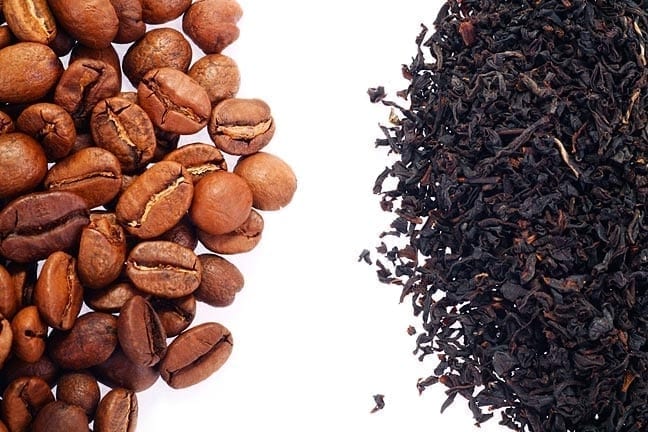If you are currently following a ketogenic diet, also called keto, then you have probably…

Bulletproof Just Got $40 Million More, So Let’s Explore Their Coffee Claims
Bulletproof Coffee company Bulletproof 360 Inc. announced yesterday that it has raised more than $40 million in equity and debt financing, bringing its investment total up to $69 million over the past three years.
A statement a founding partner of the firm that led the investment, Rohan Oza of Cavu Ventures, declared Bulletproof as poised to be the “millennial Starbucks.”
Sure, that’s a nifty nickname for the benefit of the company’s financial backers, but it’s also a confounding proposition from a company that has blurred the lines between traditional coffee and the health and lifestyle segments further than any other.
While Bulletproof has positioned itself as a full-on lifestyle and “content” brand, its bread and butter, so to speak, remains coffee. Unfortunately, despite all the fancy branding and claims related to quality and physical benefits, little is known about Bulletproof’s core product.
As Bulletproof now offers a range of coffee products online and on grocery shelves — including ground bags, whole bean bags, single-serve pods, and single-serving RTD cartons — maybe it’s time for a brief analysis about what we actually know about Bulletproof’s coffee, based on a survey of their own marketing materials:
Claim: The company boasts that its coffee products are “Certified Clean Coffee.”
Analysis: No such third-party certification exists.
Claim: All Bulletproof coffees are independently lab-tested for 27 performance-robbing toxins.
Analysis: Wtf is a performance-robbing toxin? Independently tested by whom?
Claim: “Bulletproof coffee uses only beans from Rainforest Alliance Certified farms in Guatemala and Colombia, coffee estates that have a direct relationship with Bulletproof and that have been trained on the Bulletproof Process.”
Analysis: This is starting to resemble actual information, but wouldn’t it be nice to know some more details about the coffee? Who grew it? Milled it? Exported it? Imported it? What varieties are being used? What does a “direct relationship” with Bulletproof actually mean?
Claim: “Bulletproof uses a thorough, sustainable washing technique, rather than cheaper and more wasteful traditional methods that involve soaking coffee in large fermentation tanks.”
Analysis: Does this just mean some kind of mechanical removal of the mucilage? Or are they simply describing a traditional processing method? Either dry or washed?
Claim: “The coffee is then kept as dry as possible — under the bright sun and then in mechanical driers — to reduce moisture and opportunities for mold to grow.”
Analysis: Isn’t all coffee dried? Yes, yes it is. All coffee is dried.
Claim: “Experienced coffee harvesters hand-pick every only [sic] perfectly ripe coffee berries, and after harvesting, we use the precision Bulletproof Process™ to ensure a special upgraded class of green coffee bean with the lowest possible levels of harmful mold toxins and bacteria.”
Analysis: Here we go again with the “harmful mold toxins and bacteria.” There’s no scientific evidence showing that coffees produced through traditional methods — or any methods, for that matter — produce molds or toxins at a harmful level to humans. In fact, coffee is widely considered to be a healthy drink.
Claim: “Then we roast the beans in small batches here in the U.S. under the strictest conditions, further minimizing the formation of toxins from the roasting process. Roasting the beans enhances their naturally occurring antioxidant capacity and flavor to provide you with a healthier, tastier cup of coffee.”
Analysis: Enough with the “toxins.” Roasting does in fact bring out more desirable flavor attributes in coffee, but that’s true for virtually every coffee ever roasted on earth. It’s why coffee is roasted.
We reached out to Bulletproof 360 asking for more information about each of these claims but have not yet heard back. At this point, though, the company’s strategy toward its core product seems to be to fabricate a problem (performance-robbing toxins in coffee) then promote itself as the only solution to that problem (Certified Clean Coffee).
The coffee industry has its fair share of problems — many of them very real in terms of their social, economic and environmental impact to the many millions of people coffee touches every day. The last thing it needs is a new problem designed out of thin air to build brand loyalty in the pseudo-sciencey, quick-fix-health-ninny segment.
Nick Brown
Nick Brown is the editor of Daily Coffee News by Roast Magazine. Feedback and story ideas are welcome. See the “About Us” page located at the bottom of this site for contact information.







